We strive to provide you with authoritative, trustworthy, and expert advice. In doing so, the staff at bbqdropout.com performs extensive research, editing, and fact checking to every post on this webiste. If you feel that this article can improve, please feel free to reach us at staff@bbqdropout.com
Before continuing this article, I wanted to let you know that I have a YouTube channel where I showcase all sorts of video content related to BBQ. Subscribing would mean a lot to me, and I very much appreicate all the support!
The quick answer is no, your smoked brisket should not taste like pot roast.
What brisket tastes like is primarily determined by how it is prepared.
When grilling or braising brisket, the seasonings and rub that you use will contribute a lot of flavors.
However, while smoking brisket, you rely on the smokiness of the wood to penetrate and saturate the meat.
After all, that’s why you’re smoking it in the first place: to achieve that distinctive smoky flavor that only 12 hours of low and slow cooking can achieve.
However, after a long smoke, you may discover that it does not taste quite right.
In fact, it has a flavor that is eerily similar to pot roast.
Fortunately for you, this isn’t a rare occurrence, and many inexperienced smokers will find themselves in this predicament at least a couple of times.
The Difference Between Braised and Smoked Brisket (Flavoring)
A properly smoked brisket is incredibly soft, easily falling apart and shredding with a fork.
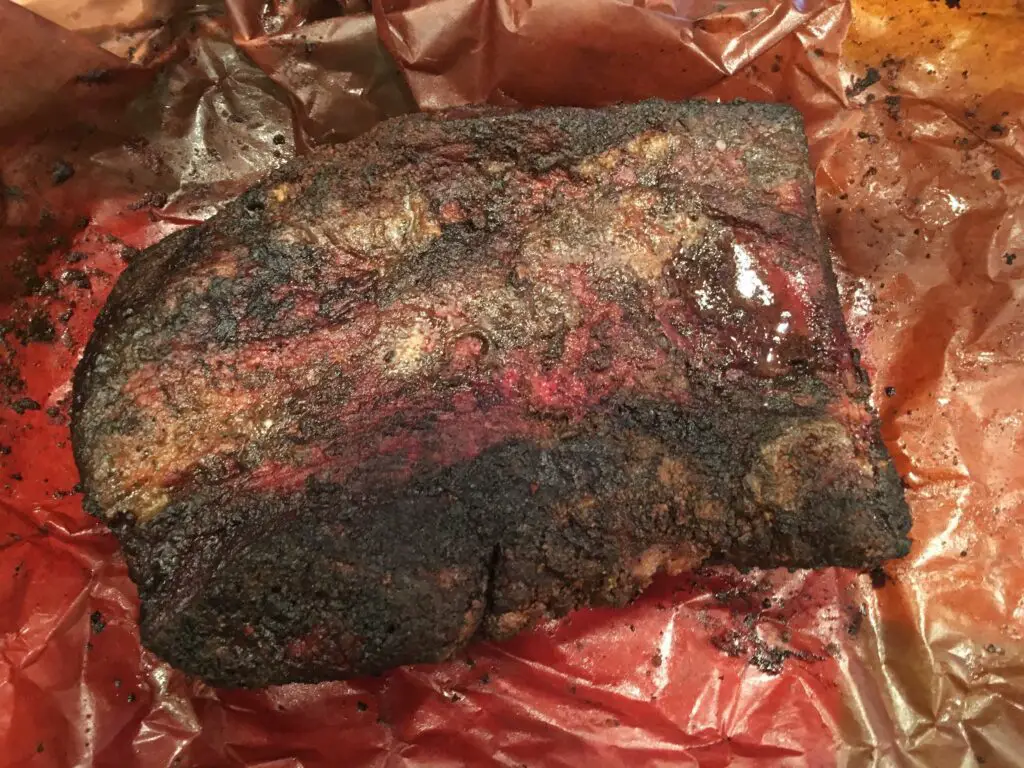
The meat is juicy and wonderfully savory and rich, with a slight crispy crunch from the bark (or even crackled skin).
It has all of the flavors of the smoke, as well as any other seasonings or rubs you’ve used to prepare it.
The finished result should melt in your mouth and be nearly effortless to pull apart.
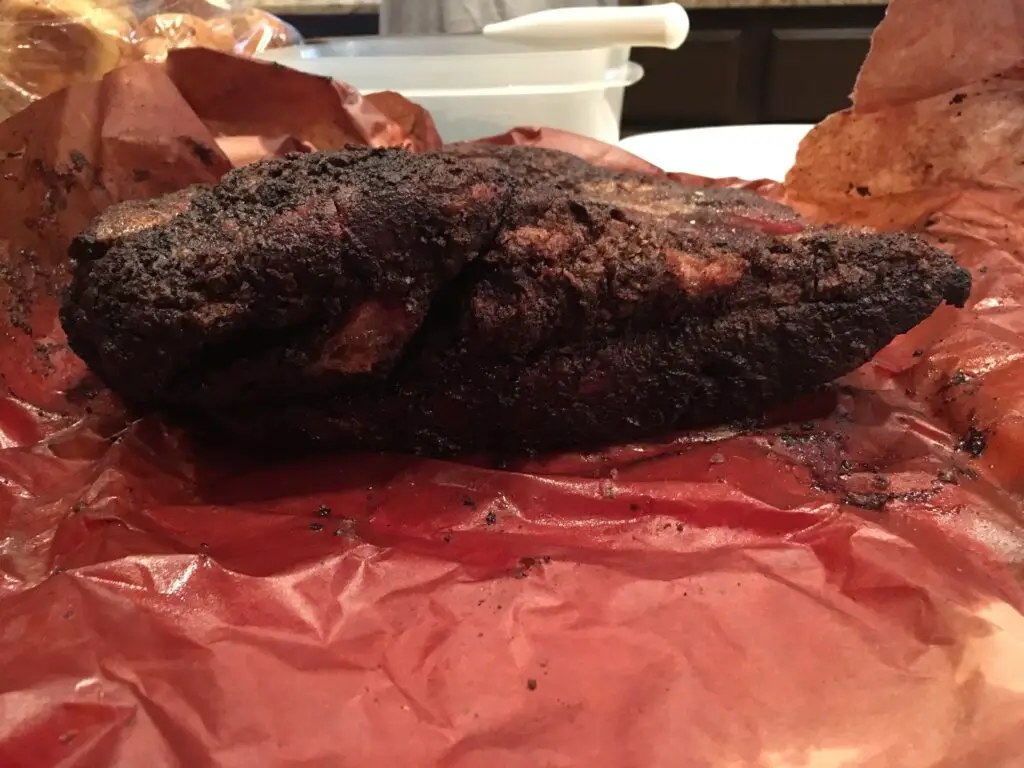
Pot roast, on the other hand, is braised rather than smoked.
It’s similar in that it requires “slow and low” cooking, but it’s done in an oven or slow cooker.
It’s typically made in a liquid such as beef broth, juices, or even beer, commonly with roasted vegetables in the cooking tray with the meat.
This is what gives pot roast its signature “stewed meat” and rustic flavor profile.

The meat is still moist and flavorful, but less crunchy and more chewy than smoked brisket.
Why Does My Brisket Taste Like Pot Roast?
Not Enough Smoke
This is a common blunder. You’re essentially braising the brisket by not accumulating enough smoke in the smoker.
The tricky part is that even if there isn’t enough smoke, the heat will still cook the brisket and bring it to temperature but will miss out on most of the smoky flavor.
Simply use your eyes and nose for this.
Can you smell the smoke?
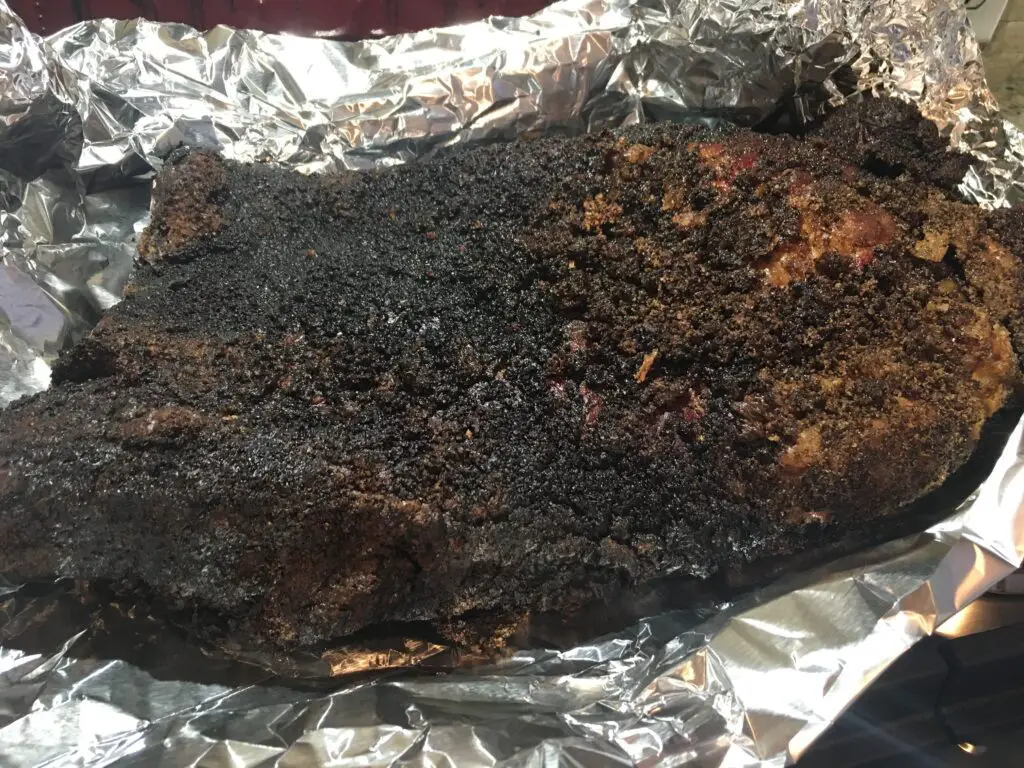
Is that smoke billowing from the smoker?
If not, make changes.
Too Much Heat
A smoked brisket cooks much slower than a pot roast.
The flavor and texture of the brisket might be altered if the ambient smoke temperature in the smoker is set too high.
Overcooking brisket will considerably dry it out, sometimes even changing its flavor (and texture) to that of roast beef.
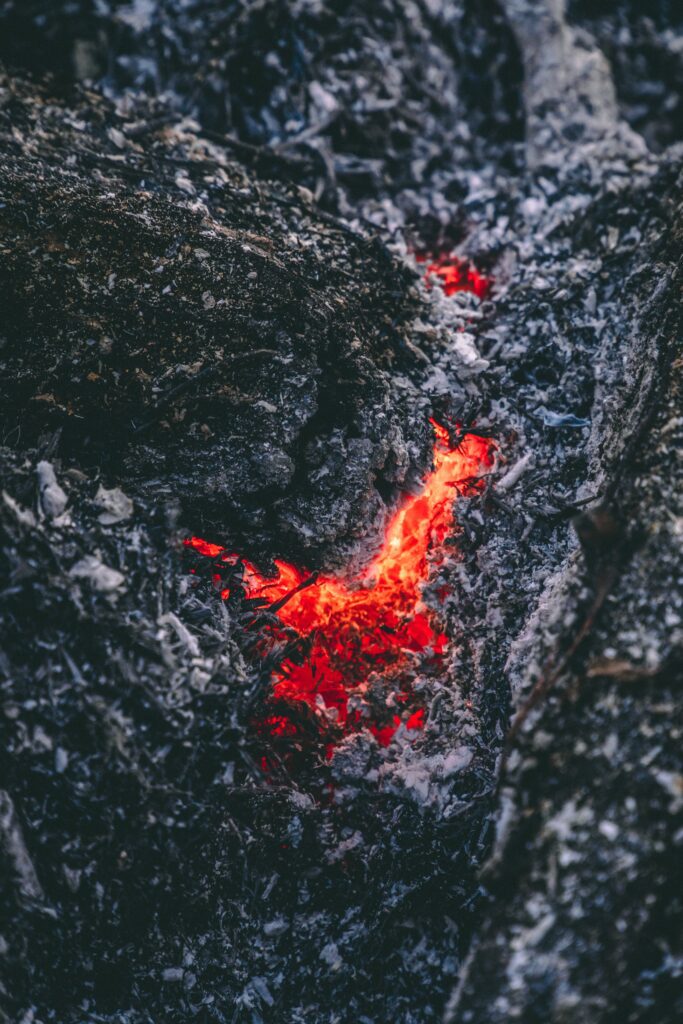
Alternatively, comparable effects might occur if the brisket is smoked too long.
The longer a brisket is left on the smoker after it has been thoroughly cooked, the tougher and less flavorful it becomes.
Too Many Injections
“Injecting” a brisket is to apply any marinade, rub, rendered juices, or brine straight to the cut’s centre.
It contributes to the inside remaining moist and flavorful.
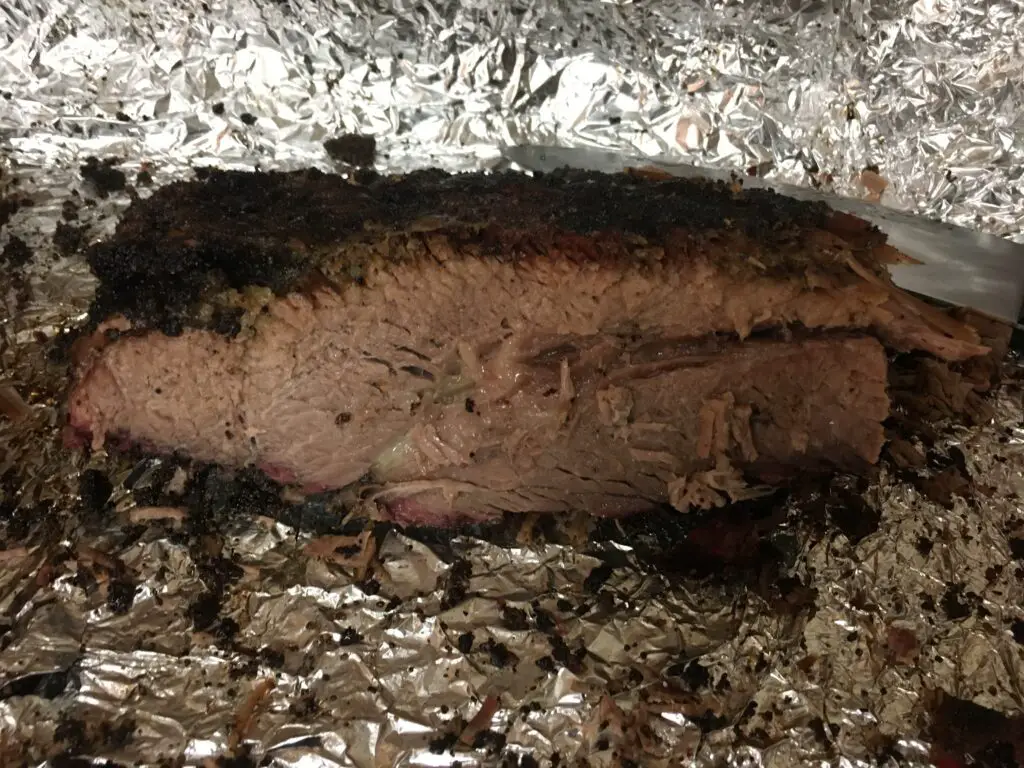
However, injecting too much might have negative consequences, causing the brisket to braise rather than smoke.
Over basting the meat can have a similar effect.
The issue is that the more liquid you add to the meat, the longer it will take to cook.
Wrapping Too Early
Most people consider wrapping a brisket to be standard procedure, but it’s crucial to know when to wrap.
Generally, you shouldn’t wrap a brisket until it reaches “the stall,” or when it reaches 150 degrees (F). All of its juices are sealed inside when wrapped.

This essentially “braises” the brisket for a short period of time, helping it to pull free from the stall.
By wrapping too soon, you lengthen the time the brisket is exposed to the braising effects.
How to Avoid
This is sometimes a case of trial and error.
Correctly smoking meat might often necessitate a lot of care, especially if the weather and temps are unstable.
Brisket is typically smoked at temperatures ranging from 200 to 250 degrees(F).
For the greatest results, attempt to keep the temperature about 225 degrees(F).
Some individuals like to raise the ambient smoke temperature all the way to 300 degrees(F) in the hopes of cooking faster and avoiding the stall.
However, you risk compromising the flavor and texture of the brisket by doing so.
You can also avoid using tin foil wraps for butcher paper.
Paper wraps the brisket much less tightly, allowing greater airflow and reducing the “braising effects” of a tightly wrapped brisket in foil.
Final Thoughts
As you can see, a smoked brisket and a braised pot roast have a lot of distinctions.

Given how differently they’re cooked, there’s no reason they should taste identical.
If your smoked brisket tastes identical, a mistake was made somewhere along the line.
Remember:
• Check that your smoker is set to the proper temperature and that it is producing enough smoke to enrich the meat.
• Watch the amount of basting or injections you use on the brisket, as too much will alter the flavor.
• If this is a recurring problem for you, use butcher paper wraps instead of tin foil, since the butcher paper will allow the smoke to penetrate more effectively while generating a crispy texture.
Robert is a certified Pitmaster, with over a decade of experience in smoking the best meats you’ll ever feast upon. He also has a Bachelor of Business Administration from the University of Texas at San Antonio. When he’s not researching technical topics, he’s most likely barbecuing in his backyard.
